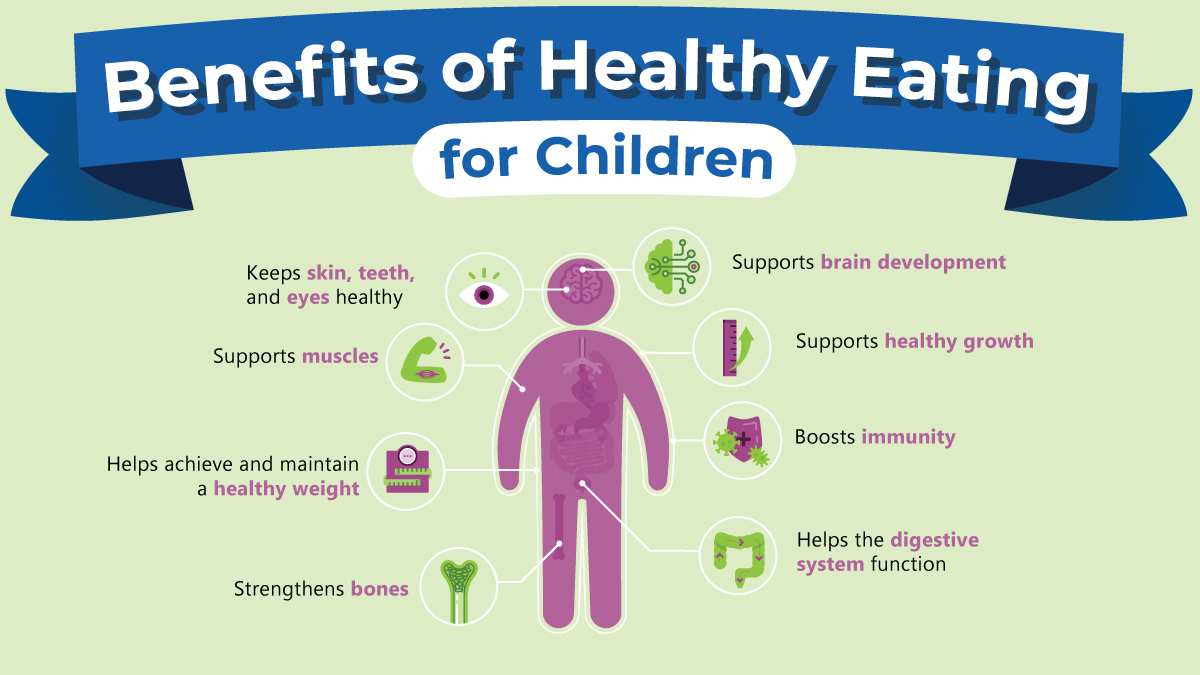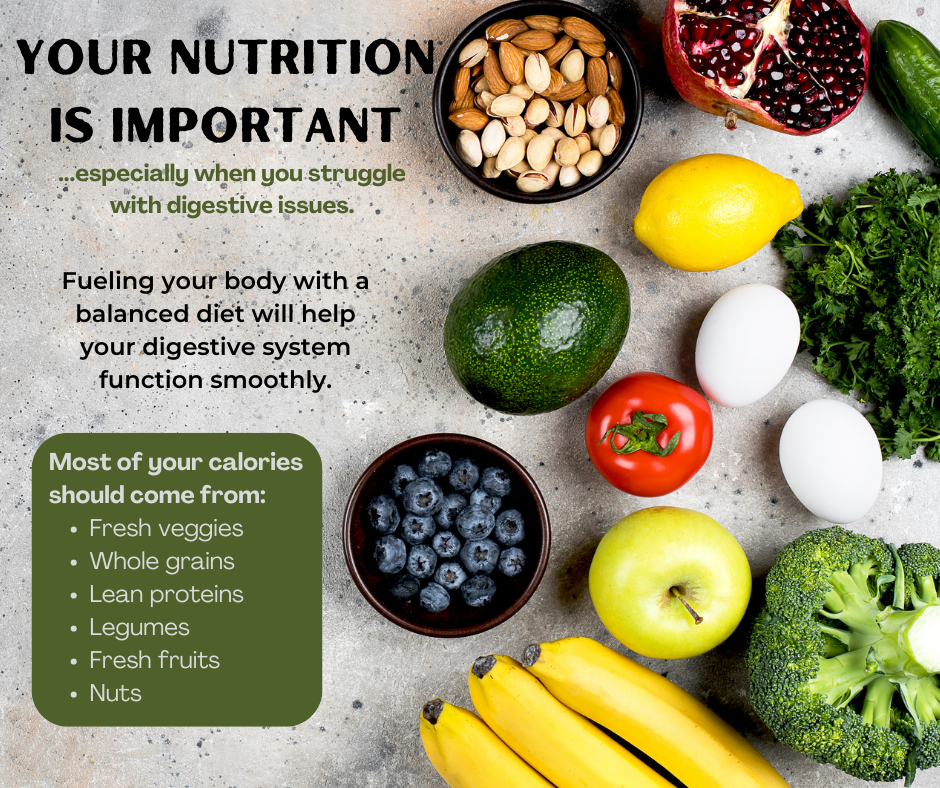Why is Diet And Nutrition Important? Unlock Vital Health Secrets
Diet and nutrition are essential for overall health. They impact every aspect of our lives.
A healthy diet provides the energy and nutrients needed for daily activities. Good nutrition supports growth, development, and helps in preventing diseases. Eating a balanced diet ensures that our body functions properly. It influences our mood, energy levels, and even mental health.
Poor dietary choices can lead to health issues like obesity, diabetes, and heart disease. Understanding the importance of diet and nutrition can help you make better food choices. It can improve your quality of life and longevity. In this blog post, we will explore why diet and nutrition are crucial for a healthy lifestyle. Discover how making informed food choices can benefit you.
Health Benefits
Maintaining a balanced diet and proper nutrition is crucial for overall health. The benefits extend beyond just a fit body. It includes better mental clarity and enhanced physical well-being. Good nutrition impacts various aspects of life, from daily energy levels to long-term disease prevention. Understanding these health benefits can motivate you to make healthier food choices.
Physical Well-being
Eating the right foods can greatly improve physical health. A balanced diet provides the body with essential nutrients. These nutrients help in maintaining energy levels, boosting the immune system, and promoting healthy growth. Consider the following benefits:
- Energy Levels: Carbohydrates, proteins, and fats are primary energy sources. They help you stay active throughout the day.
- Immune System: Vitamins and minerals like Vitamin C, Vitamin D, and Zinc help to strengthen the immune system.
- Healthy Growth: Nutrients like Calcium and Vitamin D are essential for bone health, especially in children and teens.
Here’s a simple breakdown of some key nutrients and their sources:
| Nutrient | Sources |
|---|---|
| Protein | Meat, fish, eggs, legumes |
| Carbohydrates | Bread, rice, pasta, fruits |
| Fats | Oils, nuts, seeds, avocados |
| Vitamins | Fruits, vegetables, dairy products |
These nutrients work together to keep the body functioning efficiently. A well-balanced diet can prevent chronic diseases such as heart disease, diabetes, and obesity. It also helps in faster recovery from illnesses and injuries.
Mental Clarity
What you eat also affects your brain. Good nutrition leads to better mental clarity. This means improved concentration, memory, and mood. The brain needs a constant supply of nutrients to function well. Here are some key points:
- Concentration: Omega-3 fatty acids found in fish can improve focus and cognitive function.
- Memory: Antioxidants in berries, nuts, and green leafy vegetables protect the brain from oxidative stress.
- Mood: Nutrients like Magnesium and Vitamin B6 play a role in the production of serotonin, a mood stabilizer.
Consider this table for brain-boosting nutrients:
| Nutrient | Sources |
|---|---|
| Omega-3 Fatty Acids | Fish, flaxseeds, walnuts |
| Antioxidants | Berries, nuts, green leafy vegetables |
| Magnesium | Dark chocolate, nuts, seeds |
| Vitamin B6 | Poultry, fish, potatoes |
Eating a diet rich in these nutrients can help in reducing stress and anxiety. It promotes a positive mental state. This leads to better productivity and a happier life. Proper nutrition supports both mental and physical health, making it essential for overall well-being.
Weight Management
Maintaining a healthy diet and proper nutrition is crucial for overall well-being. One of the most important aspects of this is weight management. Managing your weight effectively can help prevent a range of health issues, improve energy levels, and boost self-esteem. By focusing on caloric balance and nutrient density, you can achieve and maintain a healthy weight.
Caloric Balance
Caloric balance is the relationship between the calories you consume and the calories you burn. To maintain your current weight, the number of calories consumed must equal the number of calories burned. This balance is essential for weight management. Here are some key points about caloric balance:
- Caloric Surplus: Consuming more calories than you burn leads to weight gain.
- Caloric Deficit: Burning more calories than you consume leads to weight loss.
To determine your caloric needs, consider factors like age, gender, weight, height, and physical activity level. Below is a simple table to illustrate average daily caloric needs:
| Activity Level | Men (Calories/day) | Women (Calories/day) |
|---|---|---|
| Sedentary | 2,000-2,400 | 1,600-2,000 |
| Moderately active | 2,200-2,800 | 1,800-2,200 |
| Active | 2,400-3,000 | 2,000-2,400 |
Monitoring your caloric intake is crucial. Use a food diary or mobile app to track the calories you consume. Adjust your diet based on your weight goals.
Nutrient Density
Nutrient density refers to the amount of nutrients a food contains relative to its caloric content. Choosing nutrient-dense foods ensures you get essential vitamins and minerals without consuming too many calories. This helps in weight management by keeping you full and satisfied. Consider these tips for choosing nutrient-dense foods:
- Fruits and Vegetables: Rich in vitamins, minerals, and fiber. Low in calories.
- Whole Grains: Provide complex carbohydrates and fiber. Keep you energized longer.
- Lean Proteins: Sources like chicken, fish, and legumes. Help build and repair tissues.
- Healthy Fats: Nuts, seeds, and avocados. Essential for brain health.
Below is a comparison table of nutrient-dense versus calorie-dense foods:
| Category | Nutrient-Dense | Calorie-Dense |
|---|---|---|
| Fruit | Apple (52 calories) | Banana chips (147 calories) |
| Vegetable | Broccoli (55 calories) | French fries (312 calories) |
| Protein | Grilled chicken (165 calories) | Fried chicken (320 calories) |
By choosing nutrient-dense foods, you can manage your weight more effectively. These foods provide essential nutrients and help control hunger.
Chronic Disease Prevention
Diet and nutrition play a vital role in our overall health. They help maintain our body’s functions and energy levels. They are also crucial in preventing chronic diseases. Chronic diseases, such as heart disease and diabetes, can be significantly impacted by the foods we eat. Proper nutrition can reduce the risk and manage these conditions effectively.
Heart Disease
Heart disease is a leading cause of death worldwide. A healthy diet can reduce the risk of heart disease. Consuming foods rich in nutrients supports heart health and prevents complications. Here are some key dietary habits to consider:
- Increase intake of fruits and vegetables: These are high in vitamins, minerals, and fiber.
- Choose whole grains: Whole grains help control blood pressure and cholesterol levels.
- Opt for lean proteins: Fish, poultry, and legumes are good choices.
- Limit saturated and trans fats: These fats can increase cholesterol and risk of heart disease.
- Reduce sodium intake: Too much salt can raise blood pressure.
A balanced diet also involves portion control and mindful eating. Avoiding excessive consumption of processed foods and sugary beverages is essential. These foods contribute to weight gain and poor heart health. The table below summarizes some heart-healthy foods and their benefits:
| Food | Benefits |
|---|---|
| Oats | Reduces cholesterol |
| Salmon | Rich in omega-3 fatty acids |
| Spinach | High in potassium and fiber |
| Almonds | Boosts heart health |
Diabetes
Diabetes is a chronic condition that affects how your body processes blood sugar. A proper diet can help manage diabetes and prevent complications. Here are some important dietary tips for diabetes management:
- Focus on fiber-rich foods: Fiber helps control blood sugar levels.
- Choose complex carbohydrates: Whole grains, vegetables, and legumes are good choices.
- Monitor portion sizes: Eating smaller, balanced meals can prevent blood sugar spikes.
- Limit sugary foods and drinks: These can cause rapid increases in blood sugar.
- Stay hydrated: Drink plenty of water to help manage blood sugar levels.
Protein is also important for those with diabetes. It helps maintain muscle mass and supports overall health. Lean proteins such as fish, chicken, and plant-based options are ideal. Avoiding processed and high-fat meats is crucial. The table below highlights some beneficial foods for diabetes:
| Food | Benefits |
|---|---|
| Beans | High in fiber and protein |
| Quinoa | Rich in protein and fiber |
| Berries | Low in sugar, high in antioxidants |
| Nuts | Healthy fats and protein |

Immune System Support
Why is Diet And Nutrition Important? A healthy diet and good nutrition play a key role in maintaining a strong immune system. Your body’s ability to fight infections and illnesses hinges on the nutrients you provide it. Let’s explore how diet and nutrition support your immune system.
Nutrient Roles
Specific nutrients are crucial for a healthy immune system. Vitamins, minerals, and other nutrients work together to keep your immune system functioning optimally. Here are some essential nutrients and their roles:
- Vitamin C: Helps stimulate the production of white blood cells, which fight infections.
- Vitamin D: Enhances pathogen-fighting effects of monocytes and macrophages, white blood cells that are important parts of your immune defense.
- Zinc: Necessary for the normal development and function of cells mediating innate immunity, like neutrophils and natural killer cells.
- Iron: Essential for immune cell proliferation and maturation, particularly lymphocytes, associated with the generation of a specific response to infection.
- Protein: Important for the healing and recovery process. Proteins form the building blocks of immune cells.
| Nutrient | Role in Immune Support |
|---|---|
| Vitamin C | Stimulates production of white blood cells |
| Vitamin D | Enhances pathogen-fighting effects |
| Zinc | Supports innate immunity cells |
| Iron | Supports immune cell proliferation |
| Protein | Forms building blocks of immune cells |
Impact Of Diet
A balanced diet rich in fruits, vegetables, whole grains, and lean proteins can enhance your immune system. The right diet provides essential nutrients that your immune system needs to function properly. Eating a variety of foods ensures that you get a wide range of nutrients. For example:
- Fruits and vegetables are rich in vitamins and antioxidants.
- Whole grains provide fiber and energy.
- Lean proteins supply essential amino acids.
On the other hand, a poor diet can weaken your immune system. Consuming too much sugar, processed foods, and unhealthy fats can lead to inflammation and reduce your body’s ability to fight infections. Here’s how:
- High sugar intake can suppress the immune system.
- Processed foods often lack essential nutrients.
- Unhealthy fats can promote inflammation.
To support your immune system, focus on nutrient-dense foods. Avoid excessive sugar and processed foods. Make sure to include a variety of fruits, vegetables, whole grains, and lean proteins in your diet.
Energy Levels
Diet and nutrition play a vital role in maintaining energy levels throughout the day. The food we eat acts as fuel for our bodies. Without proper nutrition, our energy can dip, making us feel sluggish and tired. A balanced diet helps ensure that we have the energy needed to perform daily activities efficiently.
Balanced Meals
Balanced meals are crucial for maintaining steady energy levels. A balanced meal includes a mix of carbohydrates, proteins, and fats. Each of these nutrients plays a specific role in providing energy:
- Carbohydrates: They are the body’s primary source of energy. Choose whole grains, fruits, and vegetables.
- Proteins: They help repair and build tissues. Include lean meats, beans, and nuts in your diet.
- Fats: Healthy fats provide long-lasting energy. Opt for avocados, olive oil, and fish.
For instance, a balanced breakfast might include:
| Food | Category |
|---|---|
| Oatmeal | Carbohydrate |
| Scrambled eggs | Protein |
| Avocado slices | Healthy Fat |
This combination ensures a steady release of energy throughout the morning. Avoid skipping meals as it can lead to energy crashes. Eating at regular intervals helps maintain blood sugar levels, keeping you energized.
Snacking Smart
Snacking smart is another way to maintain energy levels. Choose snacks that provide a balance of nutrients. Avoid sugary snacks that can cause a quick spike and drop in energy. Instead, opt for snacks that offer a mix of carbohydrates, proteins, and fats. Here are some smart snacking options:
- Fresh fruit with nuts: Provides natural sugars, fiber, and healthy fats.
- Greek yogurt with honey: Offers protein, probiotics, and a touch of sweetness.
- Whole-grain crackers with cheese: Combines complex carbs and protein for lasting energy.
For example, an afternoon snack might include:
| Snack | Nutrient |
|---|---|
| Apple slices | Carbohydrate |
| Almonds | Healthy Fat |
| String cheese | Protein |
This combination helps sustain energy levels without the crash. Eating small, balanced snacks between meals keeps your metabolism steady and prevents overeating during main meals. Drinking water is also important to stay hydrated, as dehydration can lead to fatigue.

Digestive Health
Maintaining a balanced diet and proper nutrition is essential for overall health. One key aspect often overlooked is digestive health. A healthy digestive system is crucial for absorbing nutrients, preventing disease, and maintaining energy levels. Let’s delve into why diet and nutrition are vital for digestive health.
Fiber Importance
Fiber plays a critical role in digestive health. It helps keep the digestive system running smoothly. There are two types of fiber: soluble and insoluble.
- Soluble Fiber: Dissolves in water to form a gel-like substance. It helps lower blood cholesterol and glucose levels.
- Insoluble Fiber: Adds bulk to the stool and helps food pass more quickly through the stomach and intestines.
Some benefits of fiber include:
- Preventing constipation
- Reducing the risk of colorectal cancer
- Maintaining a healthy weight
Here’s a quick table of high-fiber foods:
| Food | Fiber Content (grams per serving) |
|---|---|
| Beans | 15 |
| Broccoli | 5 |
| Whole grains | 4 |
| Apples | 4 |
Gut Microbiome
The gut microbiome consists of trillions of bacteria and other microorganisms in the digestive tract. These microorganisms are vital for good health. They help break down food, produce vitamins, and protect against harmful pathogens. Factors that affect the gut microbiome include:
- Diet
- Stress
- Antibiotics
- Age
To maintain a healthy gut microbiome, consider the following:
- Eat a variety of foods: Different foods support different types of bacteria.
- Include probiotics: Foods like yogurt and sauerkraut contain live bacteria that are beneficial for the gut.
- Limit sugar and artificial sweeteners: These can harm the gut bacteria balance.
- Stay hydrated: Water supports the mucosal lining of the intestines and the balance of good bacteria.
In summary, a diet rich in fiber and mindful of gut health can significantly improve digestive health. This, in turn, supports overall well-being.
Mental Health
Have you ever wondered why diet and nutrition are so important for mental health? The food we eat plays a crucial role in how we feel, think, and behave. Good nutrition can improve our mood, boost our energy, and help us think clearly. Let’s explore how diet affects mental health, focusing on two key areas: mood regulation and cognitive function.
Mood Regulation
What we eat can have a significant impact on our mood. Certain nutrients help regulate the chemicals in our brain that control how we feel. For example, foods rich in omega-3 fatty acids, such as fish and flaxseeds, can help reduce symptoms of depression and anxiety. Here are some ways diet can influence mood:
- Serotonin Production: Foods like turkey, nuts, and seeds contain tryptophan, which helps produce serotonin, a hormone that regulates mood.
- Blood Sugar Levels: Eating balanced meals with protein, fiber, and healthy fats can keep blood sugar levels stable, preventing mood swings.
- Vitamin D: Sunlight and foods like fortified milk and egg yolks provide vitamin D, which is linked to improved mood and reduced risk of depression.
Let’s look at how different foods can influence mood through their nutrient content:
| Food | Nutrient | Mood Impact |
|---|---|---|
| Salmon | Omega-3 Fatty Acids | Reduces inflammation and depression |
| Spinach | Folate | Supports serotonin production |
| Greek Yogurt | Probiotics | Improves gut health and mood |
Cognitive Function
What we eat can also affect our cognitive function. Our brains need certain nutrients to work well. Without them, we can feel tired, forgetful, or unable to concentrate. Here are some nutrients that support cognitive function:
- Antioxidants: Foods like berries, nuts, and dark chocolate are rich in antioxidants, which protect the brain from damage and improve memory.
- Choline: Found in eggs and lean meats, choline is essential for brain development and memory.
- Complex Carbohydrates: Whole grains and legumes provide a steady supply of glucose, the brain’s main energy source, improving focus and concentration.
Consider these foods and their impact on cognitive function:
| Food | Nutrient | Cognitive Benefit |
|---|---|---|
| Blueberries | Antioxidants | Improves memory and brain function |
| Walnuts | Omega-3 Fatty Acids | Supports brain health |
| Quinoa | Complex Carbohydrates | Provides steady energy for the brain |
Eating a balanced diet with these nutrients can help improve our mental health. By choosing the right foods, we can support our mood and cognitive function every day.
Long-term Longevity
Maintaining a balanced diet and proper nutrition is crucial for long-term longevity. Your food choices today can impact your health years down the line. A nutritious diet supports physical and mental well-being, helping you live a longer, healthier life.
Healthy Aging
As we age, our bodies undergo many changes. Ensuring you get the right nutrients can help ease this process. Healthy aging is not just about living longer; it’s about maintaining vitality and function as you grow older.
- Bone Health: Calcium and Vitamin D are essential for keeping bones strong, reducing the risk of fractures.
- Heart Health: Omega-3 fatty acids found in fish can lower the risk of heart disease.
- Brain Function: Antioxidants in fruits and vegetables can help protect brain cells and improve cognitive function.
Here’s a table that highlights some essential nutrients for healthy aging:
| Nutrient | Benefits | Food Sources |
|---|---|---|
| Calcium | Strengthens bones | Dairy, leafy greens |
| Omega-3 | Supports heart health | Fish, flaxseed |
| Antioxidants | Protects brain cells | Berries, nuts |
Incorporating these nutrients into your daily diet can significantly impact your health as you age. Eat a variety of foods to ensure you get a wide range of nutrients. Healthy aging is achievable through mindful eating habits.
Quality Of Life
Nutrition plays a vital role in the quality of life. Proper nutrition helps maintain energy levels, improve mood, and support overall well-being.
- Energy Levels: Balanced meals with protein, carbohydrates, and fats provide sustained energy.
- Mood Improvement: Foods rich in Omega-3 and B vitamins can help regulate mood and reduce depression.
- Immune Support: Vitamins C and E strengthen the immune system, keeping illnesses at bay.
Consider these dietary tips for enhancing quality of life:
- Eat a rainbow of fruits and vegetables to ensure a range of nutrients.
- Include lean proteins such as chicken, fish, and legumes in your meals.
- Opt for whole grains instead of refined grains.
- Stay hydrated by drinking plenty of water throughout the day.
Here’s a quick comparison of the benefits of good nutrition for quality of life:
| Benefit | Impact |
|---|---|
| Higher Energy | Improves daily activities and productivity |
| Better Mood | Enhances mental health and emotional balance |
| Stronger Immunity | Reduces frequency of illnesses |
Quality of life is closely tied to what you eat. Make mindful food choices to support a happier, healthier life.

Frequently Asked Questions
What Is The Role Of Diet In Health?
Diet plays a crucial role in maintaining health. It provides essential nutrients your body needs. Balanced diets boost immunity and overall well-being.
How Does Nutrition Impact Daily Energy Levels?
Proper nutrition fuels your body with energy. Consuming balanced meals keeps energy levels stable throughout the day. Avoiding processed foods helps maintain focus.
Can Poor Diet Affect Mental Health?
Yes, poor diet can negatively impact mental health. Nutrient deficiencies can lead to mood swings and cognitive decline. Eating a balanced diet supports brain function.
What Are The Benefits Of A Balanced Diet?
A balanced diet improves physical health, supports mental well-being, and boosts energy. It also reduces the risk of chronic diseases.
Conclusion
A balanced diet and good nutrition are essential for a healthy life. They help maintain energy levels and support overall well-being. Eating the right foods boosts the immune system and improves mental health. Proper nutrition can prevent many diseases. Making smart food choices is crucial.
Start small. Incorporate more fruits and vegetables daily. Healthy eating habits make a big difference. Your body will thank you. Stay committed to a nutritious lifestyle. It’s worth it.




